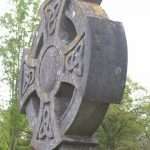No miracles?
It started with the bishop reflecting on experience in rural ministry and declaring that prayers for good weather seemed inappropriate and that, in fact, one would find no such prayer in the Book of Common Prayer.
It being a farming congregation where good weather determines the economic survival of some farms, good weather was something for which we regularly prayed, and, in fact, we did use a prayer from the Book of Common Prayer.
Almighty God, Lord of heaven and earth, in whom we live, and move, and have our being; who dost cause thy sun to rise on the evil and on the good, and sendest rain both upon the just and the unjust; We beseech thee at this time favourably to behold thy people who call upon thee, and send thy blessing down from heaven to give us a fruitful season; that, our hearts being continually filled with thy goodness, we may evermore give thanks unto thee in thy holy Church; through Jesus Christ our Lord.
The bishop contended that such a prayer was open to differing interpretations and was not necessarily a prayer for good weather, though it would be hard to discern what blessing from heaven that would bring a fruitful season was being sought, if not the weather that would bring good crops, weather the community would call “good.”
Perhaps our prayers were of no avail, but perhaps in our words we were somehow trying to align ourselves with God’s will, whatever it might be.
Then the question returned with the Bible study, the lame man in the Acts of the Apostles who lay at the gate of the Temple in Jerusalem, begging alms from passers-by, when Peter arrives and says he has no money, but, in the name of Jesus of Nazareth, tells him to stand up and walk. The text of Acts Chapter 3 is not open to differing interpretations; either the man was lame or he was not, either Peter healed him, or he did not. The story says:
And he took him by the right hand and raised him up; and immediately his feet and ankles were made strong. Jumping up, he stood and began to walk, and he entered the temple with them, walking and leaping and praising God.
One can nuance and finesse every word, every phrase, every sentence, but at the end the question remains: did something supernatural happen or not?
If it did, let’s be confident, if it did not, why do we carry on? If Scripture is to be “demythologised” to the point where it is only a set of stories, then is there anything in it that places a demand upon our lives? Is there anything in it for which it is worth someone to die?
Doesn’t integrity demand that we are clear about these matters?


Comments
No miracles? — No Comments
HTML tags allowed in your comment: <a href="" title=""> <abbr title=""> <acronym title=""> <b> <blockquote cite=""> <cite> <code> <del datetime=""> <em> <i> <q cite=""> <s> <strike> <strong>